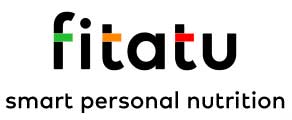How do you motivate yourself to count calories

Counting calories is the key to success whether our goal is to lose weight, gain weight or maintain weight. After all, all our goals are based on consuming the right number of calories. However, as in all areas of life, the beginning can be difficult and it is easy to get discouraged. So how do you get motivated to count calories?
Does calorie counting have to be tiring?
When we are about to embark on something that we find difficult, usually the first thing that comes to mind is whether it is really worth it. Let’s not hide the fact that the thought of having to count calories from every product we consume, or every drink that has those calories, seems abstract.
If we eat 2 slices of bread with butter, sprouts, lettuce, cheese, ham and tomato for breakfast and drink a glass of juice to go with it, with a very meticulous approach (usually required at the beginning of the journey) we would have to count the calories of as many as 8 products. In doing so, you have to take into account the portion size, as the calorie count is usually given per 100g of product. And that’s just one meal! Over the course of a day, there may be dozens of such items to count. You need to keep adding them up to know how much you have left to eat. Sounds difficult.
However, we live in the 21st century, where technology makes our lives easier every day. So there is no need to use the traditional method of a notepad and pen. It is definitely better to reach for an app on your phone that will do most of the work for us. Fitatu, among others, is such an app. Its experienced users usually only need five minutes a day to add everything they have eaten that day to the app.
How Fitatu supports calorie counting
Fitatu was developed with the intention of creating the simplest calorie calculator that is easy and fun to use. For this reason, it was equipped with a number of features that make calorie counting easier. These include:
- a huge database of products and dishes, which is still growing
- barcode scanner – simply scan a product to add it to your menu
- home measurements – many products have the most common home measurements assigned to them such as slice, spoon, teaspoon, packet etc. So you don’t need to weigh every product. Just choose the appropriate measure.
- A list of recently used products – if you often consume similar products for a meal, you can quickly add them to the app by selecting them from the list of recently used products. You can select several at once, which speeds up the task even more
- a separate “Own” tab – if you have added products or dishes to the app yourself, you will easily find them in this tab
- a “Favourites” tab – if you have a list of your favourite products, you do not need to use the search engine to find them. Once you have marked them as favourites, you will find them in this list
- filters – in the premium version, you can search the database by specific nutritional values, or narrow the results to just a product or food base, or even indicate a product or food base from a specific country (e.g. PL, DE, etc.)
- the ability to copy a given meal between days
- quick add – used when you want to add only specific information, e.g. calories only or other nutritional values
- progress bar – visible at all times in the main view, showing how many calories, proteins, fats and carbohydrates have already been delivered for the day
- extensive summaries, in which you can check your daily and weekly targets, and in the premium version, also any ranges
- and much more, which is worth exploring by using the app on a daily basis
Fitatu helps with calorie counting from the very first use, and the longer it is used, the more effective this help is, as the search engine and base adjust to the individual user. Yes, it may take a while to learn the app at first, but all the functions needed to get started are very intuitive.

Is it worth counting calories?
However, you may still ask yourself whether it is worth counting calories. After all, one can make the assumption that we just need to eat less (or more if we want to gain weight) than we used to and we should still succeed in meeting our goals. There is some truth in this, but research shows that we are usually fatly mistaken when estimating how much we have consumed on a given day.
The biggest pitfall is snacking, which usually doesn’t stay in our minds. We think that the one candy eaten after breakfast means nothing, while such a chocolate candy can have about 80 kcal. If we then have a cake with lunch (which can be as much as 150 kcal) and a coffee with 3.2% milk and sugar (which can be around 200 kcal), it is easy to calculate that we have unknowingly already consumed 430 kcal. And that’s quite a lot.
Problems with estimating calories consumed
A study was carried out with dietitians and non-dietitians to find out how accurately we estimate calories. It found that dieters estimated that they consumed 200 kcal less per day than they actually did, while non-dieters were wrong by 400 kcal.
On a weekly basis, this gives us 1,400 kcal and 2,800 kcal more than we think, respectively. Worse still, such errors occurred despite the fact that the subjects had written down and weighed everything they ate that day. As we can easily deduce, living in a hurry and just trying to remember what we have eaten, the errors can be large enough to prevent us from achieving our goals.
Learning and experience speeds up counting
We already know that it is worth counting calories. The question is how meticulous you have to be in this counting. As the study above shows, the less knowledge you have about how many calories a product has, the poorer the estimate. If you start with zero knowledge, for the first few days, it is worth weighing and adding everything you have eaten or drunk to the app.
After a while, you will learn that there are foods that provide so few calories that you don’t need to enter them on a daily basis. Examples include vegetables like lettuce, cucumbers or kohlrabi. Of course, if you want very accurate and reliable summaries, e.g. of the amount of vitamins or minerals provided, it is still worth entering all products. However, if our main goal is calorie control, then there is no need to do this. Anyway, as we mentioned earlier, experienced Fitat users usually need 5 minutes a day to add everything they have eaten that day into the app. Just 5 minutes a day. The benefits significantly outweigh the cost to do so.
What are the benefits of calorie counting?
Above all, calorie counting makes us more conscious of our eating. It protects us from the feeling of ‘after all, I’ve been sticking to a diet all day and I’m not losing weight’. It shows us in black and white where changes are required. What we eat too much of and what we eat too little of. It significantly reduces the time it takes to achieve goals.
Fitatu App
Download the application from the Play Store or Apple Store and start counting your macros with us!
Do you prefer the web version? No problem. A basic web version is prepared for our subscribers. And now you can use the MOTIVATION-9 discount code by going to https://www.fitatu.com/app/giftcode and get 29% off your monthly Fitatu Premium.
What else can you find in Fitatu Premium?
- over 1000 recipes plus several new ones every month
- additional plans for intermittent fasting
- the ability to create shopping lists
- a choice of six ready-made menus full of meals to choose
- filtering products and recipes
- more synchronization with fit apps
- access to the application in the web version
- no ads!





